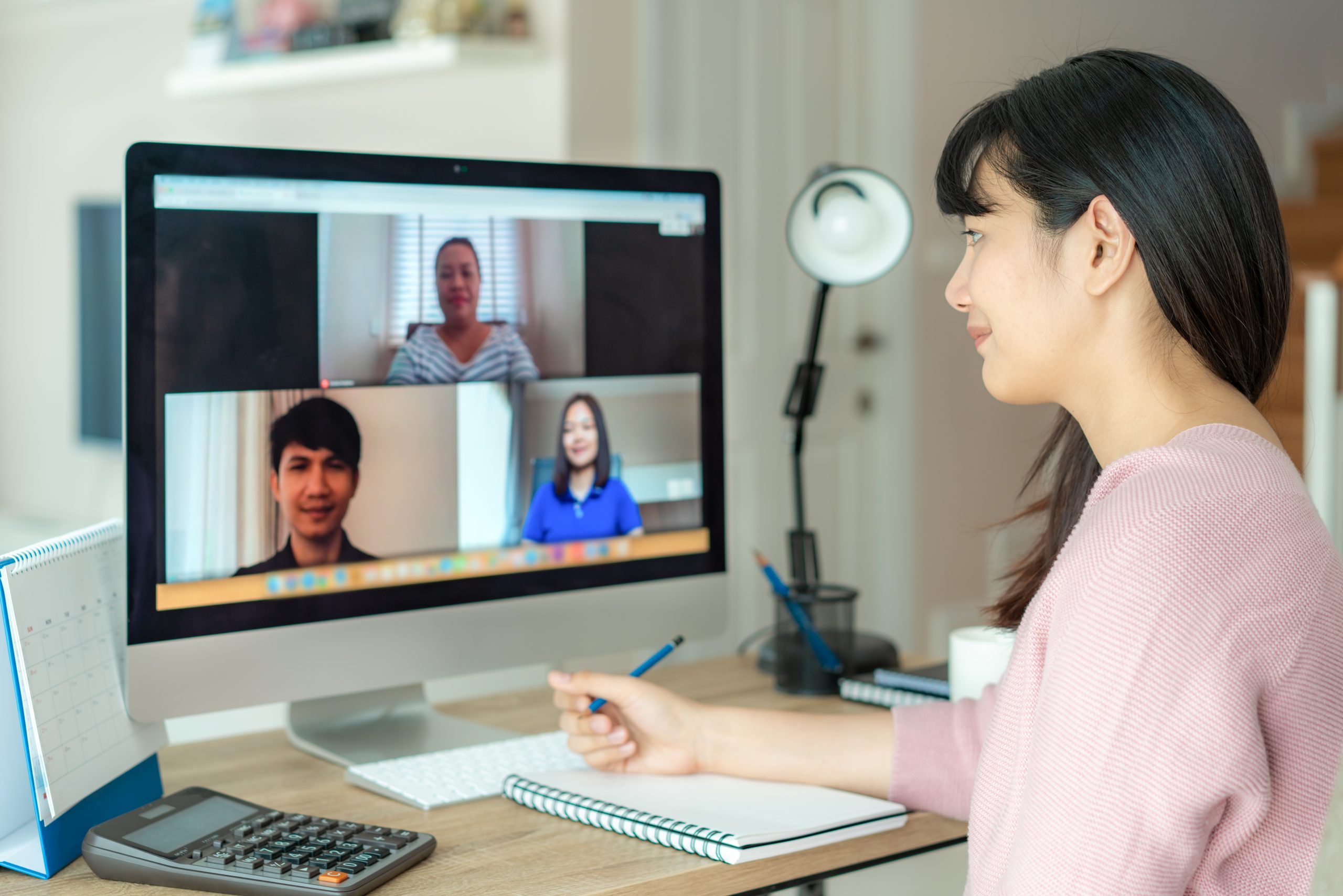Working from home can present many challenges. Spending long hours on a laptop at the kitchen table can be both physically and mentally stressful. Employees must take reasonable care for their own health and safety, and must co-operate with employers to ensure the workplace is safe by following any guidelines and carrying out necessary checks. For many organisations the pandemic presents new challenges, however there is an abundance of resources that organisations can use to assist them to maintain a productive workplace, and to assist employees struggling with their mental health.
A few tips to help you work from home safely and effectively:
- Have a comfortable workstation;
- Take regular breaks: for some people this may mean putting triggers in place to remind us to have a break- including setting an alarm;
- Set boundaries between work and home. Setting up a designated space can be a good way to signal when you aren’t working. Moving the workstation to the end of the table, putting it away or covering it can be a good way to establish work hours;
- Stay connected with your workmates, whether through regular meetings or more casual virtual chats; and
- Schedule physical or creative activities into each day- get outside if the weather allows, or do indoor activities such as Yoga or Pilates.
Comcare has developed a useful working from home checklist which can assist organisations to ensure that short-term working from home arrangements fulfil the minimum requirements to keep them safe and healthy.
Mental Health and Working from Home
Comcare has also developed some practical resources to assist you and your workplace to maintain good mental health throughout this time. They are updating their website as the situation evolves, with newly developed fact sheets. Some of their current fact sheets include:
- Guidance for Parents and Carers
- Supporting Others in Time of Uncertainty
- The Importance of Physical Health
- Responding to Uncertainty
Employers have an important role to play in ensuring their employees maintain their mental health. Employers should:
- Check in regularly;
- Create team chats that allow for continued communication;
- Provide employees with appropriate flexibility when they work;
- Encourage employees to stay physically active as well as regularly go outside;
- Ensure employees are effectively disengaging from their work at the end of the day; and
- Be available, accessible and ready to listen.
Dr Jill Newby, Associate Professor of Psychology at UNSW, who is based at the Black Dog Institute, has noted some common feelings that people may be experiencing during this time when working from home, including:
- struggling to ‘switch off’ after work hours;
- feeling isolated or disconnected both socially and professionally;
- feeling a lack of motivation; or
- feeling uncertain about their progress.
She offers some practical tips for individuals to stay motivated and productive when working from home.
It is vital that workers are supported to reach out and seek professional help if they are struggling during this time. Beyond Blue has many useful resources to help individuals stay positive and stay connected. It also provides support services which allow people to talk with a counsellor or to connect with others through online forums.
BNG has also developed some resources which may be useful when working from home. Our working from home policy outlines the responsibilities of both employees and employers when working from home, and outlines the confidentiality requirements when taking home or accessing client files from home. Our working from home agreement ensures that employers are aware of their obligations when working from home, and that the employee has undertaken the appropriate health and safety checks on their workspace.
These resources are now available in SPP:
- Policy: Working from home
- Template: Working from home agreement
You can access these resources by searching for “working” in the Reading Room.
Contact us
Want to know more? Talk to our team.
